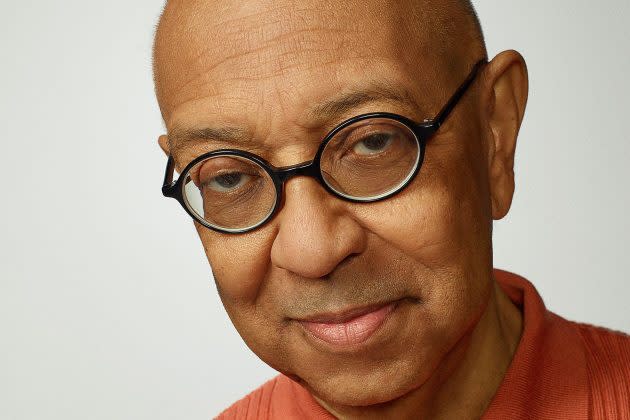‘Rustin’ Director Shares How Obamas Helped Create Civil Rights Biopic Through ‘Long Conversations’ and ‘Smart Notes’
- Oops!Something went wrong.Please try again later.
- Oops!Something went wrong.Please try again later.
- Oops!Something went wrong.Please try again later.

In “Rustin,” producer and director George C. Wolfe turns the spotlight on Bayard Rustin, a lesser-known contemporary of Martin Luther King Jr. The film reunites Wolfe with his “Ma Rainey’s Black Bottom” star Colman Domingo, who plays the gay civil rights leader as he prepares for the 1963 March on Washington. “Rustin” hits theaters Nov. 3 prior to streaming on Netflix on Nov. 17.
I’m embarrassed to admit I’d never heard the name Bayard Rustin before your film. How did his story come to your attention?
More from Variety
A24 Acquires Colman Domingo Feature 'Sing Sing' Out of Toronto
TIFF Audience Award Predictions: What Movie Will Get an Oscar Boost?
Nobody knew this story, and that’s the crime. I think I heard about him in passing in college. And then I served as chief creative officer for the National Center for Civil and Human Rights in Atlanta. As his name came up in the research I would go, “Oh, my God!” Then something else would come up, and I would go, “Oh, my God!” I just kept on going, “Oh, my God!” I was desperate to be a part of telling his story.
Why do you think his name was forgotten to history?
There are many incredible people who gave great speeches that day, but at the end of the day an international figure emerged, and that was Martin Luther King. After that extraordinary speech, he became the de facto civil rights leader. But there were also complications with Bayard having been a Communist — he later rejected it — and being out and gay. I think history just does what it does and focuses on certain people, and other people just get washed aside.
Your entire cast is incredible — everyone from Colman Domingo to CCH Pounder to Chris Rock really shines. As a director, how do you work with so many different styles and personalities so everyone gets what they need?
I always have a rehearsal period because it’s a chance to grow and develop. And I just love working with smart, passionate and driven actors. And you evolve a vocabulary; that’s one of the things that happens in that time. You learn how to talk to them and engender that trust and hopefully create an atmosphere where they know you are going to protect them — which frees them to do the work, which comes from a place of tremendous vulnerability.
The film comes to us from Higher Ground, Barack and Michelle Obama’s production company. What were they like as collaborators?
Well, I worked on the President’s Committee on the Arts and the Humanities for two terms for President Obama. So I’d met them a number of times, and they were always great. And I got my notes from the president, and they were incredibly smart notes. Because he’s a great storyteller. You never felt separated from them. They read the scripts; they had long conversations about the characters; they really joined the work.
Things you didn’t know about George C. Wolfe
Age: 69
Hometown: Frankfort, Ky.
On the stage: From 1993 to 2004, Wolfe was the artistic director of The Public Theater in New York.
Going for gold: He’s won three Tony Awards — for directing “Angels in America: Millennium Approaches” and “Bring In ’da Noise, Bring In ’da Funk” and for best special theatrical event for “Elaine Stritch at Liberty.”
To the screen: His film credits include directing “Ma Rainey’s Black Bottom” and writing and directing “Lackawanna Blues.”
Best of Variety
Sign up for Variety’s Newsletter. For the latest news, follow us on Facebook, Twitter, and Instagram.
